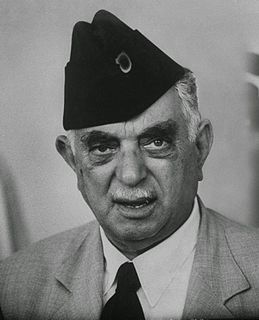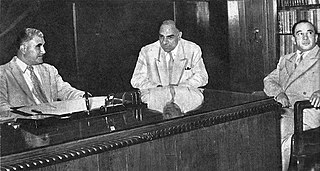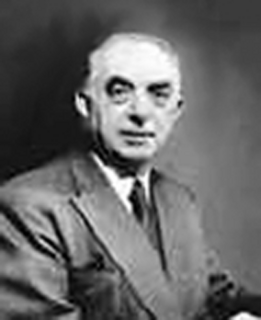 W
WParliamentary elections were held in Iraq in 1925, the first under the 1925 constitution. After the elections, Abdul-Muhsin Al-Saadoun became Prime Minister for the second time and founded the Progress Party to support the government and gain a parliamentary majority.
 W
WParliamentary elections were held in Iraq in 1928, with the final day of voting on 9 May, to elect the members of Chamber of Deputies of Iraq. They were the second elections under the 1925 constitution. There were many complaints about the integrity of the elections and the way the government handled them, with some candidates collating evidence of vote manipulation. The opposition Independence Party and Iraqi National Party wrote a letter to the British Prime Minister complaining about the Iraqi government's violation of electoral law, demanding an investigation, and offering to pay for its cost. Nevertheless, the newly elected council convened on 13 May 1928 and elected Abdul-Aziz Al-Qassab, the interior minister in Al-Saadoun government, as Speaker.
 W
WParliamentary elections were held in Iraq on 20 October 1930 to elect the members of the Chamber of Deputies of Iraq. For every twenty thousand male citizens, one Member of Parliament was elected to the Chamber of Deputies (Majlis an-Nuwwab), the dominant chamber of Parliament over the Senate. It was the third election since the establishment of the parliament.
 W
WParliamentary elections were held in Iraq in 1933 to elect the members of the Chamber of Deputies of Iraq. Although the Government Bloc led by incumbent Prime Minister Naji Shawkat won the most seats, it quickly disintegrated after the elections, allowing Rashid Ali al-Gaylani to become Prime Minister.
 W
WParliamentary elections were held in Iraq on 6 December 1934 to elect the members of the Chamber of Deputies of Iraq.
 W
WParliamentary elections were held in Iraq between 10 December 1936 and 20 February 1937 to elect the members of Chamber of Deputies of Iraq.
 W
WParliamentary elections were held in Iraq on 15 June 1948 to elect the members of the Chamber of Deputies of Iraq. The majority of seats were won by independents.
 W
WParliamentary elections were held in Iraq on 17 January 1953 to elect the members of the Chamber of Deputies of Iraq. The result was a victory for the Constitutional Union Party, which won 67 of the 135 seats. Only 57 seats were contested.
 W
WParliamentary elections were held in Iraq on 9 June 1954, although they were delayed until 14 June in some areas due to social upheaval. The Constitutional Union Party remained the largest party in the Chamber of Deputies of Iraq, winning 50 of the 135 seats, although 53 were won by independents. Despite the government creating obstacles for opposition candidates, they were described as "undoubtedly the freest elections in Iraqi history" in 2001.
 W
WEarly parliamentary elections were held in Iraq on 12 September 1954, after the Chamber of Deputies of Iraq elected in June was dissolved by the King on 3 August. The Constitutional Union Party remained the largest party, winning 94 of the 135 seats, although only 25 seats were actually contested.
 W
WParliamentary elections were held in Iraq on 5 May 1958 to elect the members of the Chamber of Deputies of Iraq. It was the last election in monarchical Iraq. Most political parties had been dissolved in 1954. The main opposition coalition, the National Union Front, decided to boycott the elections. Candidates supportive of the government won 140 of the 145 seats, whilst independent candidates won the remaining five. The new parliament lasted two months only. On 14 July the monarchical government was overthrown in a military coup, and another election the same year would institute Abd al-Karim Qasim as president of the new Iraqi Republic.
 W
WParliamentary elections were held in Iraq on 20 June 1980, the first since 1958. The elections were contested by around 860 candidates and saw the Ba'ath Party win 187 of the 250 seats. Voter turnout was approximately 80%.
 W
WParliamentary elections were held in Iraq on 20 October 1984. The elections were contested by 782 candidates, and saw the Ba'ath Party win 183 of the 250 seats.
 W
WParliamentary elections were held in Iraq on 1 April 1989, having originally been scheduled for 31 August 1988, but postponed due to the Iran–Iraq War. The elections were contested by 921 candidates, and saw the Ba'ath Party win 207 of the 250 seats.
 W
WParliamentary elections were held in Iraq on 24 March 1996. The elections were contested by 689 candidates, although 30 MPs were appointed to represent Iraqi Kurdistan. The result was a victory for the Ba'ath Party, which won 161 of the 250 seats. Voter turnout was reported to be 93.5%.
 W
WParliamentary elections were held in Iraq on 27 March 2000. The elections were contested by 522 candidates, including 25 women. Whilst there were a number of candidates, all independent candidates were nominally loyal to the Ba'ath Party, and the rest of the candidates were party members.
 W
WParliamentary elections were held in Iraq on 30 January 2005 to elect the new National Assembly, alongside governorate elections and a parliamentary election in Kurdistan Region. The 275-member legislature had been created under the Transitional Law during the international occupation. The newly elected body was given a mandate to write a new constitution and exercise legislative functions until the new constitution came into effect. The elections also led to the formation of the Iraqi Transitional Government.
 W
WFollowing the ratification of the Constitution of Iraq on 15 October 2005, a general election was held on 15 December to elect a permanent 275-member Iraqi Council of Representatives.
 W
WThe election for the governorate council of Iraq's Al Anbar Governorate were held on January 30, 2005, the same date as the Iraqi legislative election.
 W
WGovernorate council elections were held in Iraq on 30 January 2005, the same day as the elections for the transitional Iraqi National Assembly. Each province has a 41-member council, except for Baghdad, whose council has 51 members.
 W
WParliamentary elections were held in Iraq on 30 April 2014. The elections decided the 328 members of the Council of Representatives who will in turn elect the Iraqi President and Prime Minister.
 W
WA parliamentary election was held in Iraq on 7 March 2010. The election decided the 325 members of the Council of Representatives of Iraq who would elect the Iraqi prime minister and president. The election resulted in a partial victory for the Iraqi National Movement, led by former Interim Prime Minister Ayad Allawi, which won a total of 91 seats, making it the largest alliance in the council. The State of Law Coalition, led by incumbent Prime Minister Nouri Al-Maliki, was the second largest grouping with 89 seats.
 W
WThe Members of the Iraqi Kurdistan Parliament for Third Term were elected on 25 July 2009.
 W
WThe Members of the Kurdistan Region Parliament for Fourth Term were elected on 21 September 2013.
 W
WA presidential referendum took place in Iraq on October 15, 1995. It was the first direct presidential election under the rule of Saddam Hussein, who had seized power through the Revolutionary Command Council (RCC) in 1979. Taking the form of a referendum with no other candidates, the election involved giving voters paper ballots that said: "Do you approve of President Saddam Hussein being the President of the Republic?" They then used pens to mark "yes" or "no". The next day, Izzat Ibrahim al-Douri, Hussein's deputy in the ruling RCC, announced the incumbent had won 99.96% of some 8.4 million valid votes cast. Officially, 3,052 people voted against him, and turnout was 99.47%. The international community reacted with widespread incredulity to these figures.
 W
WA presidential referendum took place in Iraq on October 16, 2002. It was the second presidential election under the rule of Saddam Hussein. According to official statistics, the turnout was 100%, with all 11,445,638 Iraqis registered to vote having voted "yes" in a referendum whether to support another seven year-term for President Saddam Hussein, which would legally have ended in 2009.